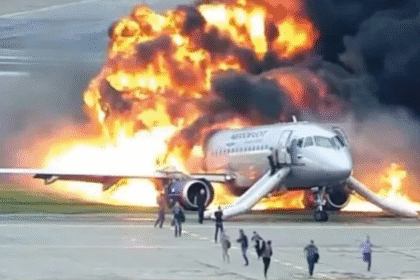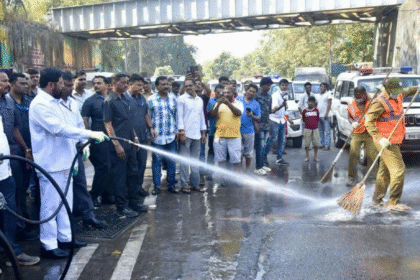Caspian Sea Shrinkage Threatens Aktau’s Future as Locals Witness Coastline Vanish
Aktau, Kazakhstan – What was once a bustling port city on the Caspian Sea is turning into a landlocked ghost town. Locals in Aktau, a western Kazakh city, find themselves walking over barren ground where seawater used to lap the shore—sometimes trekking hundreds of meters before reaching any water at all.
In a candid interview with Al Jazeera, Aktau environmental advocate Adilbek Kozybakov described the retreat in personal terms:
“I grew up with the sea right at my feet. Today, I walk across dried seabed to simply get a glimpse of water,” he said. “Every day we watch it vanish.”

His words capture the harsh reality of a sea in decline—a phenomenon visible to residents and supported by decades of environmental monitoring.
The Shrinking Sea: A Historic Perspective
The Caspian Sea, left over from the ancient Paratethys Sea some 5.5 million years ago, once stretched over 371,000 km², touching five countries—Russia, Kazakhstan, Turkmenistan, Iran, and Azerbaijan. Ecosystems thrived, sturgeon and seals multiplied, and fishing and shipping industries flourished.
That began to change in the 1990s. Researchers note that since around 1995, water levels have dropped by approximately 2 meters, with some northern fringes retreating nearly 50 km—land that was once seabed now exposed. Forecasts predict a further decline of up to 18 meters by 2100, meaning as much as a third of the Sea’s area could be lost. The implications are profound.
What’s Causing the Decline?
Experts in Aktau say the decline is not a mystery—it’s driven by a mix of human actions and climate trends:
- Climate-induced Evaporation – Warmer air, less rainfall, and shifting wind patterns are drying out the basin.
- River Diversions – Dams on the Volga and Ural Rivers, responsible for most of the Sea’s fresh water, have reduced the inflow significantly, particularly due to Russia’s upstream projects.
- Industrial Pollution – Offshore oil drilling and unchecked industrial waste have disrupted marine life and diminished water quality.
- Local Infrastructure – As Aktau’s coastal facilities like desalination plants, ports, and pipelines were built or expanded, they accelerated water evaporation and reduced natural buffering capacity.
The Fallout for Aktau Residents
Port disruptions:
The city’s port is grappling with ever-shallowing waters. Shipping lanes require constant dredging, and even then, vessels are limited to 75% capacity, increasing costs and slowing trade.
Water supply woes:
Aktau depends on seawater for desalination to meet drinking-water needs. With the shoreline receding and intake pipes stranded on dry ground, daily water shortages are becoming common.
A city utilities official said, “We lose thousands of cubic meters per day now because the sea is too far.”
Fishing and biodiversity collapse:
Once rich fisheries are being decimated. Seal numbers have plummeted from one million to ~70,000, and sturgeon—which produce Caspian caviar—are in steep decline, threatening both livelihoods and biodiversity.
Health hazards:
Exposed seabeds are now dust blankets. “Salt dust and industrial particles fill the air,” warned Dr. Marina Abdullayeva, a pediatrician in Aktau. Respiratory illnesses among children and vulnerable adults have spiked—a trend local clinics link directly to the drying sea.
Voices from the Community
Kozybakov’s remarks on reflect daily observations:
“We don’t need more studies. We see it every day. It’s losing water, losing life.”
Environmental scientist Assel Baimukanova, who grew up studying the Sea’s ecosystems, explains the human toll.
“New buildings rise, but what of the water? It used to be steps from your door. Now it’s miles.”
Fisherman Sergey Ivanov notes that his daily catch has halved over the past five years. “Our nets come up empty,” he laments. “This was our trade for generations—we’re watching it die.”
Who’s at Fault? Shared Responsibility
Governments: Kazakhstan’s president, Kassym-Jomart Tokayev, acknowledged the crisis in 2022 and committed to establishing a Caspian Research Institute. But experts say action has lagged. The regional 2018 Caspian convention, signed by bordering nations, outlines shared responsibility—but Russia’s ongoing river diversions and Kazakhstan’s lenient industrial oversight have undermined progress.
Oil and industrial interests: Offshore drilling continues with limited regulation, and environmental impact assessments are often confidential or ignored.
Confidential agreements shield polluters from public scrutiny, say local activists.
Citizens and communities: Residents are aware but not yet mobilized into coordinated action. While local NGOs advocate for sustainable fishing and pollution reporting, their efforts are patchy and underfunded.
A City on the Brink
Aktau is more than a coastal city—it is a barometer of environmental change. Its citizens have watched the Caspian recede from daily view, and they’re sounding an alarm that cannot be ignored: The sea’s decline is an attainable disaster unless remedied.








